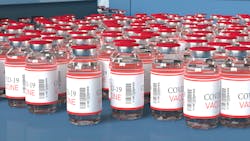Report of the meeting of the WHO Technical Advisory Group on COVID-19 Vaccine Composition (TAG-CO-VAC)
On March 16-17, 2023, the TAG-CO-VAC reconvened in Muscat, Oman. The purpose of the meeting was two-fold: to review the evidence on the performance of updated COVID-19 vaccines that incorporate descendent lineages of Omicron as a booster dose; and to establish timelines for COVID-19 vaccine composition recommendations in 2023.
The evidence reviewed by the TAG-CO-VAC to assess the performance of updated COVID-19 vaccines that incorporated descendent lineages of Omicron included: (1) published observational epidemiological studies of estimates of absolute and relative vaccine effectiveness of BA.1- or BA.4/5-containing bivalent mRNA vaccines used as a booster dose against symptomatic and severe disease; (2) laboratory-based data on the magnitude and breadth of cross-reactive immune responses against previous and circulating SARS-CoV-2 variants induced by BA.1- or BA.4/5- containing mRNA vaccines, as compared to index virus-based vaccines, used as a booster dose; and (3) laboratory-based studies and observational data on immune memory responses to evaluate the impact of repeated antigen exposure on vaccine-induced immunity and protection. Further details on the evidence reviewed by the TAG-CO-VAC can be found in the accompanying annex.
Based on the review of the data described above, the TAG-CO-VAC concludes:

